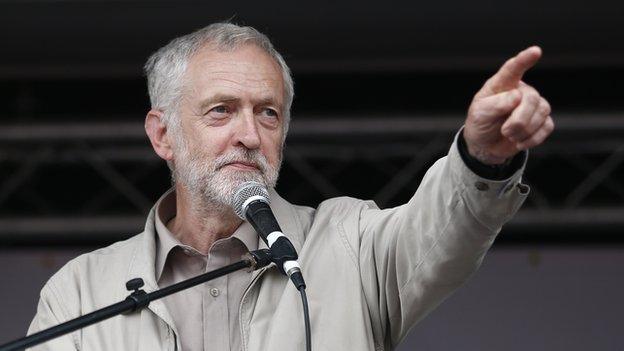Labour in post-election angst - or deeper malaise?
- Published
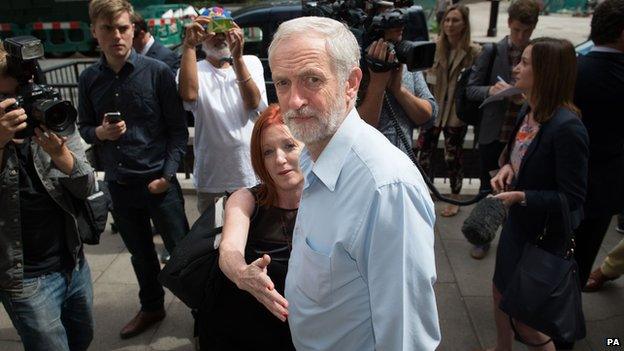
Mr Corbyn has thrown the leadership contest and the future of the party into flux
The only smiles you see on the faces of Labour types at the moment is when there's a spot of gallows humour.
"Well, I suppose Jeremy will need a Chief of Staff, won't he?" joked John McTernan, a former adviser to Tony Blair, on his way into seeing his old boss set out his diagnosis of Labour's problems.
Hours earlier, Mr McTernan had described Labour MPs who offered left winger Jeremy Corbyn their support just to ensure he made the shortlist of Labour candidates, rather than because they supported him, as "morons".
Other occasions, when talking to Labour MPs, resemble a wake: lots of animated talk about the past, just don't mention the future.
Sometimes as a political correspondent, the most telling remarks, the best quotes, are muttered in private conversations you have with politicians. It is what we call being off the record - we offer the politician anonymity, in exchange for complete candour from them.
But who needs off the record with lines like this: Tony Blair was asked about Jeremy Corbyn's outlook: "People say, my heart says I really should be with that politics. Well get a transplant, because that's just daft."
"We are in danger of becoming the political equivalent of Millwall Football Club. Their chant? `No one likes us, we don't care.' So said shadow cabinet minister Mary Creagh in the New Statesman, external.
'Post-election pain'

Labour leadership contest: at-a-glance
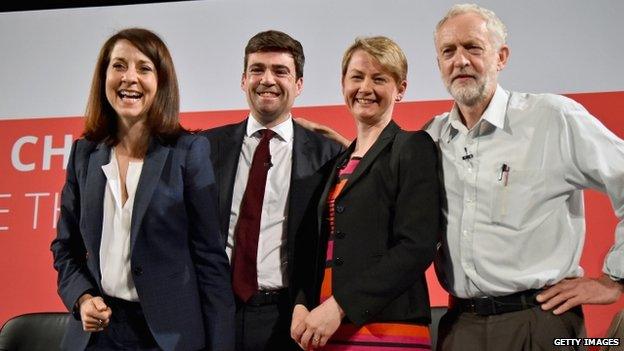
One of these four candidates will succeed Ed Miliband as leader of the Labour party
Who are the candidates? Andy Burnham, Yvette Cooper, Jeremy Corbyn, Liz Kendall
Dates: Ballot papers will be sent out on 14 August; voting can take place by post or online. They must be returned by 10 September. The result is on 12 September.
Who can vote? All party members, registered supporters and affiliated supporters - including those joining via a union - get a vote
What is the voting system? The Alternative Vote system is being used so voters are asked to rank candidates in order of preference
How does it work? If no candidate gets 50% of all votes cast, the candidate in fourth place is eliminated. Their second preference votes are then redistributed among the remaining three. If no-one has still not got 50% of votes the third place candidate is eliminated with their second preferences (or third in the case of votes transferred from the fourth place candidates) redistributed. It is then a straight head-to-head between the last two candidates with the one having the most votes winning.

The message has even crossed the Atlantic: "My party is suffering a relapse," the Shadow Business Secretary Chuka Umunna has told an audience in Washington.
So what is going on?
This is about so, so much more than a single YouGov poll - suggesting Jeremy Corbyn might win the Labour leadership - which may turn out to be drivel. It is, instead, about something much, much deeper.
The other day on Radio 4's Today Programme, I described what was happening to Labour as "the cries of pain of a party still deeply wounded after its heavy election defeat".
One or two Labour activists accused me of indulging in a spot of journalistic hyperbole. And let's be honest, that kind of accusation levelled at a reporter is often a fair cop.
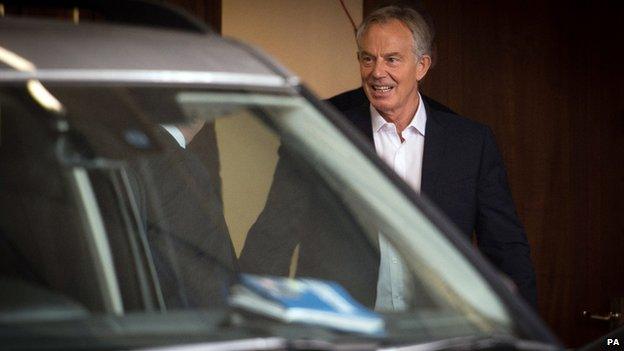
Tony Blair is not endorsing any candidates but made his feelings about Jeremy Corbyn clear
It was nothing more than a difference of opinion, some listeners told me. Well, it was definitely a difference of opinion.
But here are ten reasons why it might be a symptom of much more than that:
1) Labour's defeat was, to many, unexpected.
2) The scale of Labour's defeat was, to many, more unexpected still.
Net result: gloomy activists wonder what the future holds.
3) Those on the right of the party say the reason is obvious: Labour was too left wing.
Net result: They argue the party has to move to the right, and point passionately and in no uncertain terms to Tony Blair as proof of it.
4) Those on the left of the party say the reason is obvious: Labour was too right wing.
Net result: They argue the party has to move to the left, and point passionately and in no uncertain terms to the SNP's success as proof of it.
5) So who's the enemy for Labour? It depends who you ask.
6) A chunk of the Labour movement, its left, has, for years, felt sidelined, belittled, scorned and ignored. Suddenly, in Jeremy Corbyn, they have a standard bearer with a platform, offering a clear, socialist platform.
Net result: He can give straight answers to straight questions, his supporters are upbeat and in the spotlight, his three rivals do rather more caveating, triangulating and not answering questions so clearly. Or even, whisper their critics, are being boring and saying nothing.
7) Two of the Labour leadership candidates, Yvette Cooper and Andy Burnham, served as Chief Secretary to the Treasury when Labour was in government, at a time when Labour faces questions about its economic credibility because of its time in government. One, Andy Burnham, was also Health Secretary - meaning questions about the deaths at Stafford Hospital would keep coming too.
Net result: Some Labour activists fret these are hostages to fortune.
8) Supporters of Ed Miliband said one of his greatest achievements was keeping the party united.
Net result: this internal combustion has been a long time coming
9) Conservatives are gleeful - and quickly nicking as many Labour policies they think are worth nicking as they can
Net result: when Tories are cranking up the minimum wage and talking about 'one nation,' where is the turf for Labour, mutter some.
10) Throw one to nine into the pot, shake, stir, throw in an added dose of 1 and 2 and you arrive at... the current situation.
- Published22 July 2015
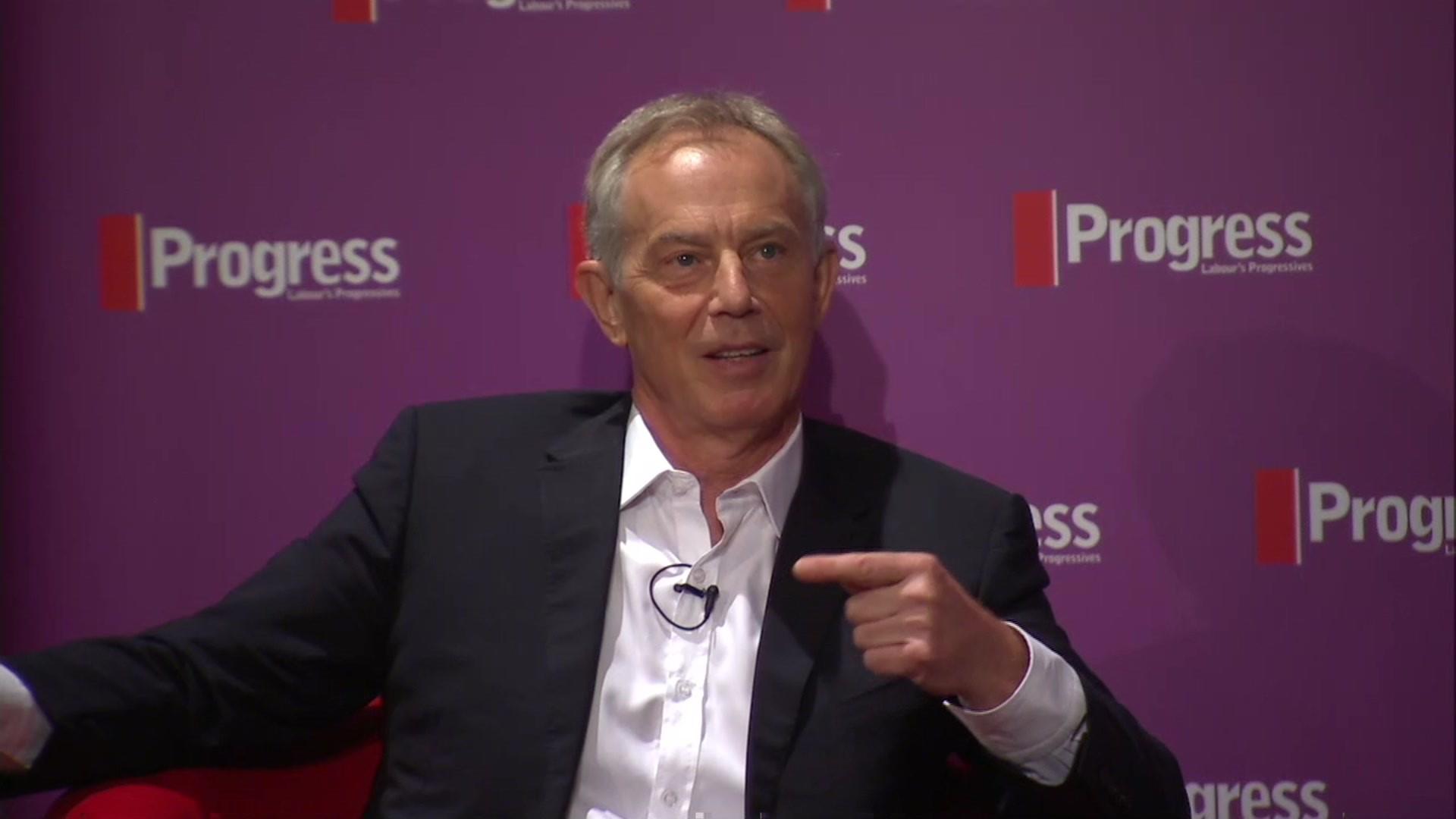
- Published22 July 2015
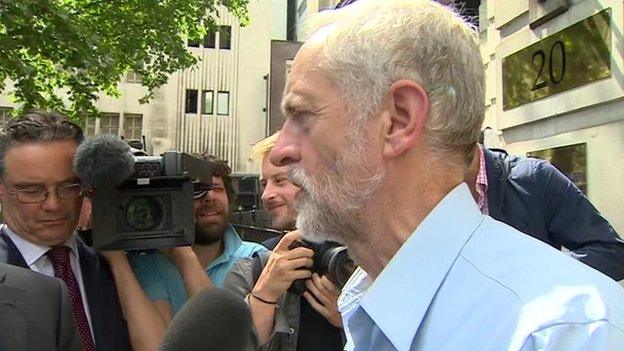
- Published19 July 2015
